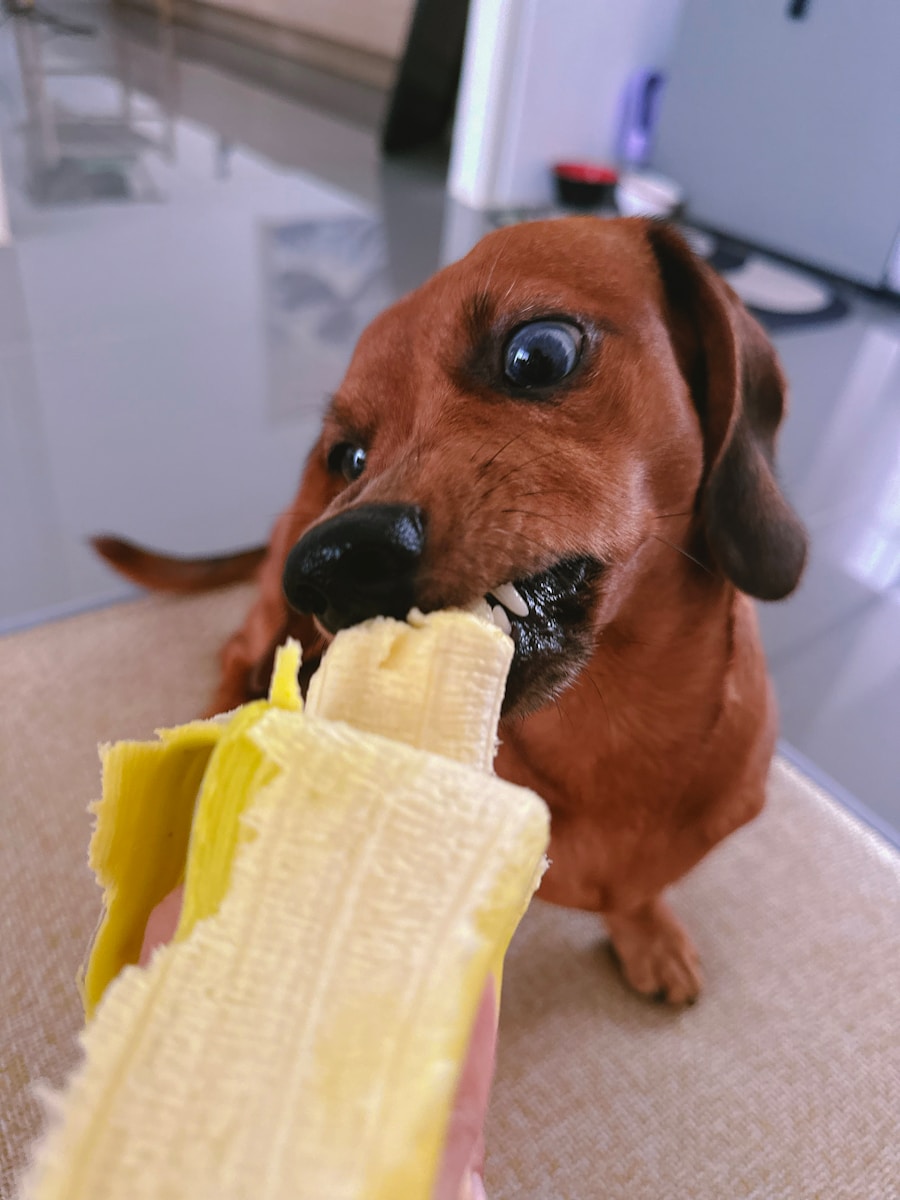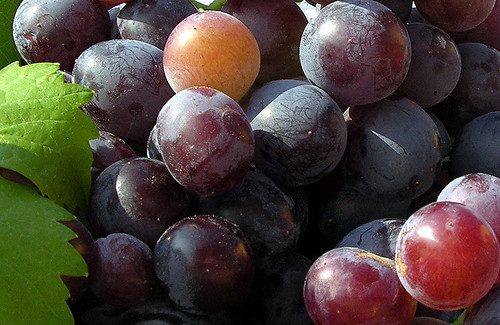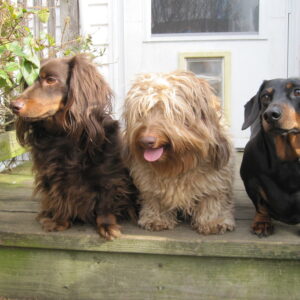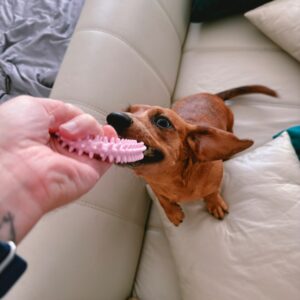Dachshund forbidden foods are a critical concern for any dog owner, particularly for those with this unique breed. Dachshunds are known for their long bodies and short legs, but they also come with specific dietary needs and restrictions. Understanding which foods are harmful to them is essential to ensure their health and well-being. In this article, we will explore various aspects of dachshund nutrition, including common foods that are toxic, human snacks to avoid, and the signs that your dachshund may have consumed something dangerous. Furthermore, we will offer safe alternatives and tips on how to keep your furry friend away from such perilous treats. Educating yourself and your family about dachshund food safety can make a significant difference in maintaining your pet’s health.
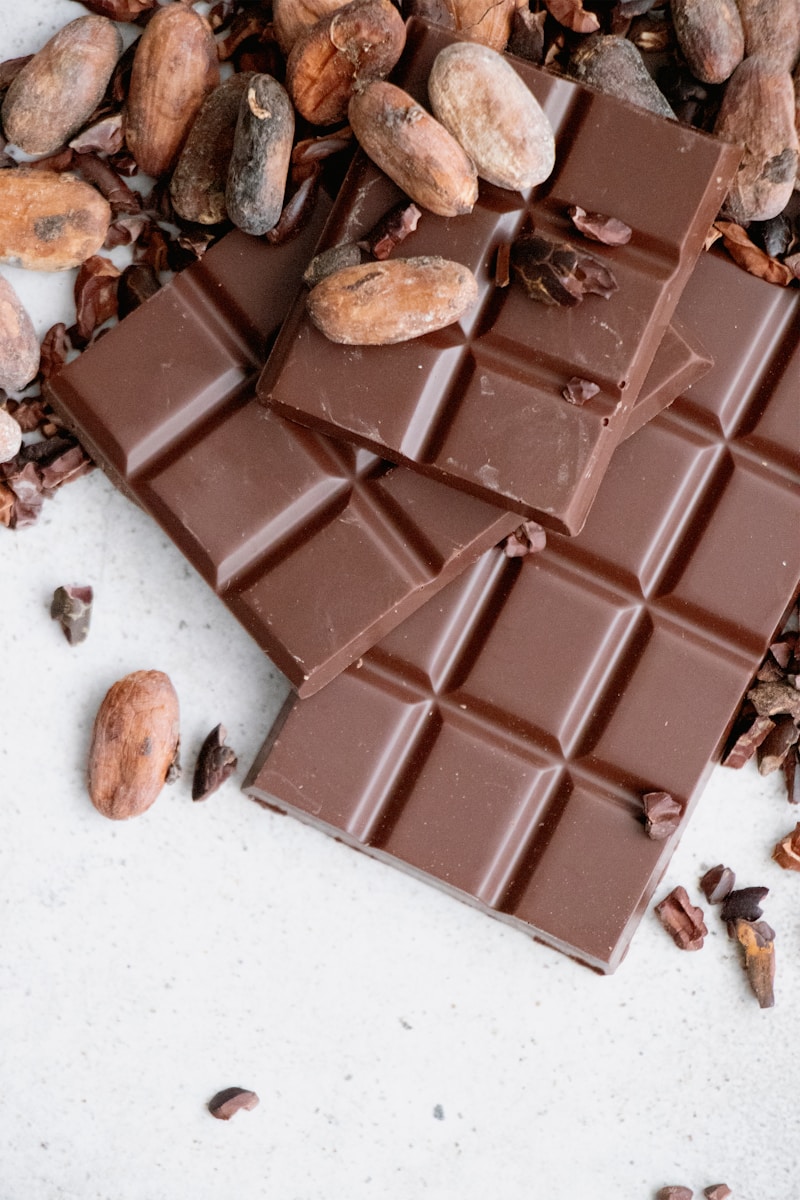
Common Foods That Are Toxic to Dachshunds
As a Dachshund owner, it’s essential to be aware of the foods that can be harmful to your furry friend. Here are some common foods that are toxic to Dachshunds:
-
- Chocolate: This sweet treat contains theobromine, which is toxic to dogs. Even small amounts can cause serious health issues.
-
- Onions and Garlic: These foods can damage a Dachshund’s red blood cells, leading to anemia. It’s crucial to avoid all forms, including powder.
-
- Grapes and Raisins: Even a small amount can lead to kidney failure in dogs. It’s best to keep these fruits out of reach.
-
- Xylitol: Found in sugar-free products, xylitol can cause a rapid insulin release, leading to hypoglycemia and potential liver failure.
-
- Avocado: Contains persin, which can be harmful to dogs. It’s best to avoid feeding any part of the avocado.
-
- Alcohol: Even small amounts can be dangerous, leading to vomiting, diarrhea, and even coma in dogs.
-
- Caffeine: Found in coffee and tea, caffeine can be fatal to dogs. Keep all caffeinated products away from your Dachshund.
-
- Nuts: Certain nuts, like macadamia nuts, can cause weakness, tremors, and hyperthermia in dogs.
Always consult with your veterinarian if you’re unsure about what foods are safe for your Dachshund. Keeping your pet safe starts with being informed!
Human Snacks to Avoid Feeding Your Dachshund
Feeding your dachshund human snacks can be tempting, but some foods can be harmful or even deadly. Here are some snacks you should avoid:
-
- Chocolate: This sweet treat contains theobromine, which is toxic to dogs.
-
- Grapes and Raisins: These can cause kidney failure in dogs, even in small amounts.
-
- Onions and Garlic: Both can damage a dog’s red blood cells, leading to anemia.
-
- Avocado: Contains persin, which can be harmful to dogs in large quantities.
-
- Nuts: Especially macadamia nuts, which can cause weakness and other issues.
-
- Alcohol: Even small amounts can be dangerous, leading to severe health issues.
-
- Caffeine: Found in coffee and tea, it can be toxic and cause restlessness or heart problems.
-
- Xylitol: A sugar substitute found in many sugar-free products, it can lead to insulin release and liver failure.
Always be cautious about what you share with your furry friend. If you’re unsure whether a snack is safe, it’s best to consult your veterinarian. Keeping your dachshund safe means making informed choices about their diet.
Signs Your Dachshund Has Consumed Forbidden Foods
As a responsible Dachshund owner, it’s crucial to recognize the signs that your furry friend may have consumed something harmful. Here are some key indicators to watch for:
-
- Vomiting: One of the most common signs that your Dachshund has ingested something toxic is vomiting. If your dog starts to vomit frequently, it may be a warning sign.
-
- Diarrhea: Loose stools or diarrhea can occur after eating forbidden foods. Keep an eye on your dog’s bathroom habits.
-
- Abdominal Pain: If your Dachshund seems to be in discomfort, such as whining or refusing to eat, it could indicate abdominal pain due to harmful food intake.
-
- Lethargy: A sudden drop in energy levels or excessive tiredness can be a sign that your dog is feeling unwell after eating something inappropriate.
-
- Excessive Thirst: If your Dachshund is drinking more water than usual, it may be a reaction to something they ate that upset their stomach.
-
- Seizures: In severe cases, consuming toxic foods can lead to seizures. If you notice this symptom, seek veterinary care immediately.
-
- Changes in Behavior: Watch for any unusual behavior, such as increased anxiety, restlessness, or aggression, which may indicate discomfort or distress.
Always monitor your Dachshund closely after they have had access to food that may be harmful. If you notice any of these signs, it’s essential to consult your veterinarian right away.
Safe Alternatives to Harmful Foods for Dachshunds
When it comes to keeping your dachshund healthy, choosing safe foods is essential. Here are some great alternatives to harmful foods that can keep your furry friend happy and healthy:
-
- Carrots: These crunchy veggies are low in calories and high in fiber, making them a perfect treat for your dachshund.
-
- Green Beans: A great source of vitamins, green beans can be served steamed or raw for a healthy snack.
-
- Sweet Potatoes: Rich in nutrients, sweet potatoes can be cooked and mashed for a tasty addition to your dog’s meal.
-
- Apples: Sliced apples (without seeds) are a sweet treat that can provide vitamins A and C.
-
- Peanut Butter: Look for unsweetened, xylitol-free peanut butter as a delicious spread or treat.
-
- Plain Yogurt: A small amount of plain yogurt can be a probiotic-rich snack for your dachshund.
-
- Cooked Chicken: Lean, cooked chicken is a great protein source that many dogs love.
Always introduce new foods gradually and in moderation to avoid any digestive issues. Consulting with your veterinarian before making significant changes to your dachshund’s diet is always a wise choice.
How to Keep Your Dachshund Away from Dangerous Foods
Keeping your Dachshund safe from dangerous foods requires vigilance and proactive measures. Here are some effective strategies:
-
- Establish a Safe Eating Zone: Create a designated area for your Dachshund to eat. This helps prevent them from accessing harmful foods that may be left on tables or counters.
-
- Use Baby Gates: Install baby gates in your kitchen or dining areas to restrict your Dachshund’s access to places where dangerous foods may be present.
-
- Educate Yourself: Learn about foods that are toxic to dogs. Knowledge is power when it comes to keeping your pet safe.
-
- Secure Your Trash: Use dog-proof trash cans to prevent your Dachshund from rummaging through garbage and consuming harmful scraps.
-
- Keep Foods Out of Reach: Store all human food in cabinets or on high shelves where your Dachshund cannot reach them.
-
- Monitor Guests: Inform visitors about the importance of not feeding your Dachshund any human food. This helps avoid accidental ingestion of harmful items.
-
- Provide Healthy Treats: Offer safe and healthy alternatives to satisfy your Dachshund’s cravings. This can reduce their desire to seek out forbidden foods.
-
- Regular Training: Train your Dachshund to understand commands like “leave it” or “no” to discourage them from approaching dangerous foods.
By implementing these strategies, you can significantly reduce the risk of your Dachshund consuming dangerous foods and ensure their health and safety.
Understanding the Risks of Certain Foods for Dachshunds
Feeding your dachshund the right foods is essential for their health and well-being. However, many pet owners may not be aware of the risks associated with certain foods that can be harmful to their furry friends. Understanding these risks can help you make informed choices for your dog’s diet.
Potential Risks of Improper Diet
Many foods that are safe for humans can be dangerous for dachshunds. These risks include:
-
- Digestive Issues: Some foods can cause upset stomach, vomiting, or diarrhea in dachshunds.
-
- Allergic Reactions: Certain ingredients may trigger allergies, leading to skin irritations or other health problems.
-
- Toxicity: Foods like chocolate, grapes, and onions can be toxic and even fatal to dachshunds.
Understanding Ingredients
It’s important to read labels and know what ingredients are safe for your dachshund. Many commercial pet foods contain fillers and additives that may not be healthy for your dog. Always look for high-quality ingredients and avoid those that are harmful.
Long-Term Health Effects
Consistently feeding your dachshund harmful foods can lead to long-term health issues such as:
-
- Obesity: Poor diet choices can lead to weight gain, which is especially risky for dachshunds due to their long backs.
-
- Organ Damage: Certain toxic foods can cause serious damage to vital organs, impacting their overall health.
-
- Behavioral Changes: Diet can also affect your dachshund’s mood and energy levels, leading to behavioral issues.
Conclusion
Being aware of the risks associated with certain foods is vital for every dachshund owner. By making informed choices about your dog’s diet, you can help ensure a longer, healthier life for your beloved pet.
Consulting Your Vet About Dachshund Diet and Forbidden Foods

When it comes to your dachshund’s diet, consulting your veterinarian is crucial. They can provide tailored advice based on your dog’s specific needs and health conditions. Here are some key points to consider:
Why Consult Your Vet?
Your vet has the expertise to help you understand what foods are safe and which ones to avoid. Regular consultations can help you:
-
- Identify nutritional needs: Every dachshund is different. Factors like age, weight, and activity level play a role in their dietary requirements.
-
- Discuss forbidden foods: Your vet can inform you about foods that are toxic or harmful to dachshunds.
-
- Plan a balanced diet: A proper diet ensures your dachshund stays healthy and happy.
Preparing for Your Vet Visit
Before heading to the vet, prepare a list of questions and concerns you may have regarding your dachshund’s diet:
-
- What are the best commercial dog foods for dachshunds?
-
- Are there any specific human foods that I should never feed my dog?
-
- How can I recognize if my dog is having dietary issues?
Follow-Up and Ongoing Care
After your consultation, it’s important to follow your vet’s recommendations:
-
- Regular check-ups: Schedule routine visits to monitor your dachshund’s health and dietary needs.
-
- Stay informed: Keep up with any new research or recommendations regarding dachshund diets.
In summary, consulting your vet about your dachshund’s diet is essential for their overall health and well-being. Taking the time to understand their nutritional needs and the risks of certain foods will help keep your furry friend safe and healthy.
Educating Family and Friends About Dachshund Food Safety
When it comes to keeping your Dachshund safe, educating family and friends about food safety is essential. Here are some key points to share:
-
- Understand the Risks: Explain which foods are harmful to Dachshunds. Many common human foods can be toxic, and it’s crucial for everyone to be aware.
-
- Set Clear Boundaries: Make it clear that certain foods should never be shared with your Dachshund. This includes items like chocolate, grapes, and onions.
-
- Safe Treats: Suggest safe alternatives that family and friends can offer. Items like carrots or specially formulated dog treats are great options.
-
- Be Consistent: Encourage everyone to follow the same rules regarding feeding. Consistency helps prevent accidental poisoning.
-
- Share Resources: Provide information or resources about Dachshund nutrition. This can include websites, pamphlets, or vet recommendations.
-
- Open Communication: Foster an environment where family and friends feel comfortable asking questions about what is safe for your Dachshund.
By taking these steps, you can help ensure that your Dachshund remains healthy and safe from harmful foods.
The Importance of Label Reading for Dachshund Owners
Reading labels is crucial for dachshund owners. It helps ensure that your furry friend stays healthy and safe. Many foods contain ingredients that can be harmful to your dachshund. By understanding how to read labels, you can make better choices for their diet.
Understanding Ingredients
Labels list all the ingredients in a product. Look for common allergens and harmful additives. Some ingredients to watch out for include:
-
- Onions
-
- Garlic
-
- Xylitol
-
- Chocolate
Nutrition Information
Nutrition facts are essential for maintaining your dachshund’s health. Pay attention to:
-
- Calories – Ensure they are within a healthy range.
-
- Fat content – Too much fat can lead to obesity.
-
- Protein levels – Important for muscle health.
Expiration Dates
Always check the expiration date on food products. Feeding expired food can lead to health issues for your dachshund. Fresh food is always the best choice!
Choosing Quality Products
Not all pet foods are created equal. Look for brands that use high-quality ingredients. Research the company and read reviews to find the best options for your dachshund.
Making Informed Decisions
Reading labels allows you to make informed decisions. You can avoid harmful ingredients and choose foods that promote your dachshund’s well-being. Always take the time to examine what you feed your pet.
In conclusion, label reading is a vital skill for dachshund owners. It helps protect your pet from harmful substances and ensures they receive the nutrition they need to thrive.
